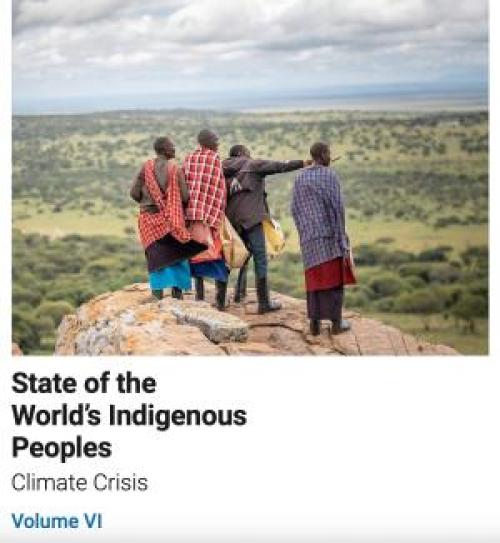
The sixth edition of the State of the World's Indigenous Peoples focuses on Climate Crisis. It focuses on the vital role of Indigenous peoples in addressing the impacts of climate change. Although Indigenous Peoples account for only around 5 per cent of the world’s population, they effectively manage and protect an estimated 80 per cent of the Earth’s biodiversity and about 40 per cent of protected areas and ecologically intact landscapes. Since Indigenous Peoples first came to the United Nations, they have emphasized the fundamental importance of their relationship with their lands, territories and resources, which hold a deep cultural and spiritual significance within their societies…
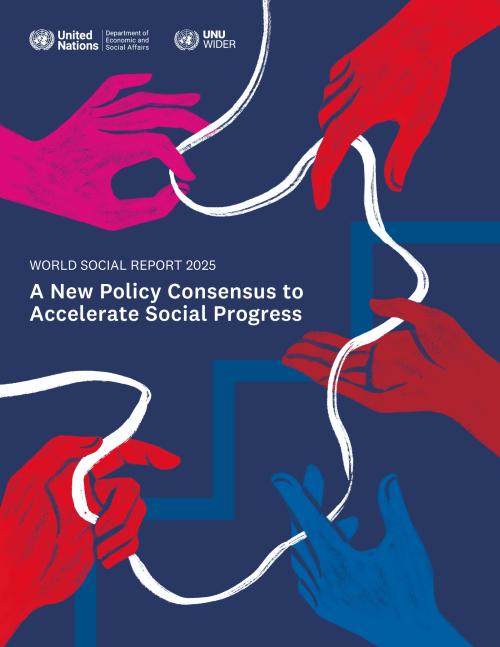
Economic insecurity, staggering levels of inequality, declining social trust and social fragmentation are destabilizing societies worldwide. The World Social Report 2025, reveals trends that are threatening communities and demand immediate, decisive policy action. The report calls for a new policy consensus anchored in three principles—equity, economic security for all, and solidarity—that are essential to strengthen the three dimensions of sustainable development.
The report is the first to be co-produced with the United Nations University World Institute for Development Economics Research (UNU-WIDER). This collaboration brings new research insights into the report,…
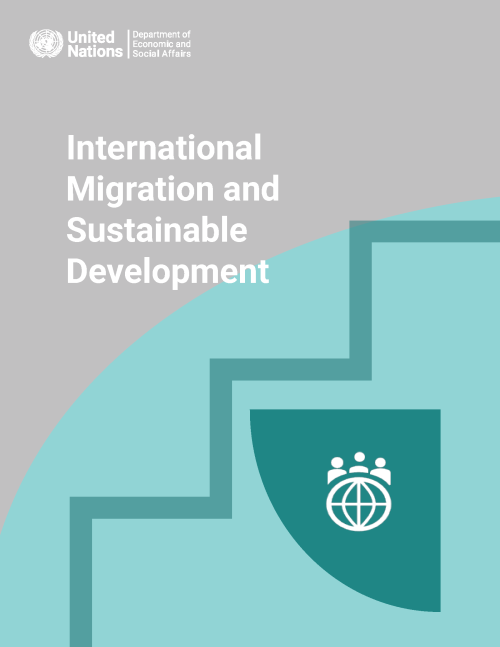
International Migration and Sustainable Development examines the linkages between international migration and the social, economic and environmental dimensions of sustainable development. It discusses how international migration is defined and measured, examines levels and trends in international migration at the global and regional level and by income group, explores the growing scope and impact of international migration and reviews its relevance for achieving internationally agreed sustainable development Goals and targets. The report also offers policy recommendations focusing on the social, economic and environmental causes and consequences of…
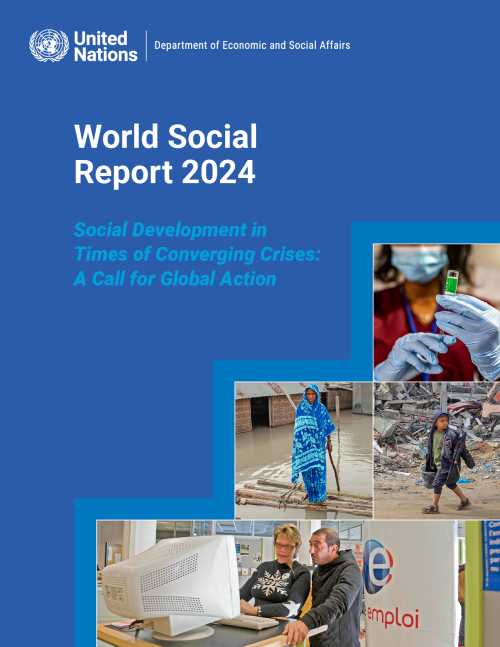
According to the World Social Report 2024, urgent global action is needed to support national efforts to address the setbacks caused by the recent global crises, and to avoid the conversion of future shocks to crises.
Titled “Social Development in Times of Converging Crises: A Call for Global Action”, the World Social Report 2024 explains that, in our current global policy environment, shocks more readily turn into crises that cross boundaries, demanding international action. Particularly as such crises disproportionately impact the most vulnerable people, societies and countries.
Crisis-driven setbacks in poverty reduction and unemployment
Successive shocks,…
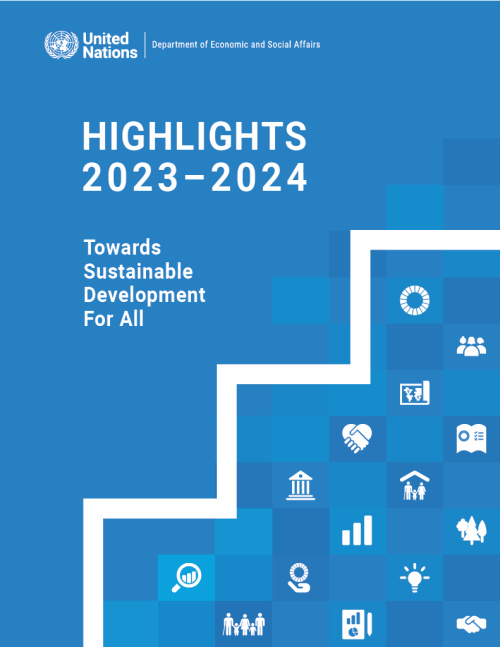
The UN DESA Annual Highlights report is a tool to communicate the contributions of the Department to the realization of internationally agreed development goals and shared social, economic, and environmental aspirations. It showcases the Department’s role in gauging trends, building capacities, and shaping solutions. UN DESA Highlights 2023–2024 covers activities over the period of the 78th Session of the General Assembly (September 2023 – August 2024) and reflects the Department’s response to the set priorities and expressed needs of Member States. Seven (7) thematic chapters showcase how UN DESA put its expertise to the task of supporting Member State efforts to implement the 2030…
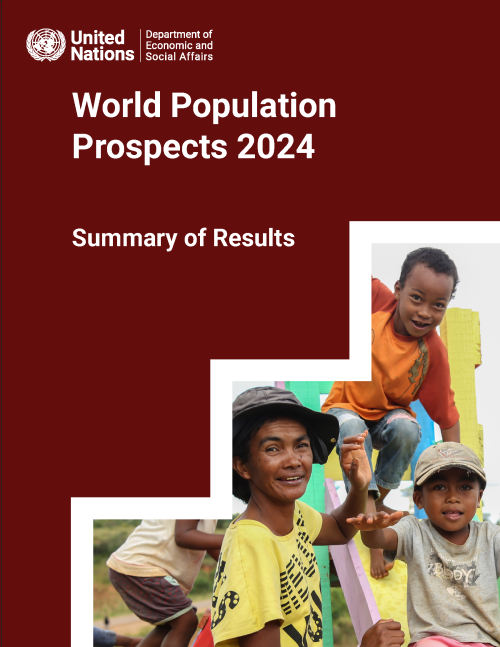
World Population Prospects 2024: Summary of Results adopts the analytical framework of the demographic transition—the historic shift towards longer lives and smaller families—approximated here by the timing at which populations peak in size, to explore differences in population trends that characterise countries and regions today and provide insight into their future trajectories. The report also offers policy recommendations to prepare countries for a population size, age structure and spatial distribution that may differ appreciably from that of their recent past.
World Population Prospects 2024 is the twenty-eighth edition of the official United Nations population…
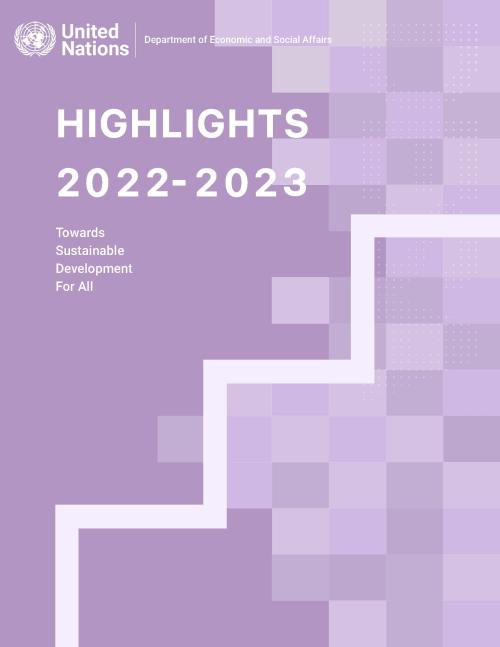
The UN DESA Annual Highlights report is a tool to communicate the contributions of the Department to the realization of internationally agreed development goals and shared social, economic, and environmental aspirations. It showcases the Department’s role in gauging trends, building capacities, and shaping solutions. UN DESA Highlights 2022-2023 covers activities over the period of the 77th Session of the General Assembly (September 2022 – August 2023) and reflects the Department’s response to the set priorities and expressed needs of Member States. Seven (7) thematic chapters showcase how UN DESA put its expertise to the task of supporting Member State efforts to implement the 2030…
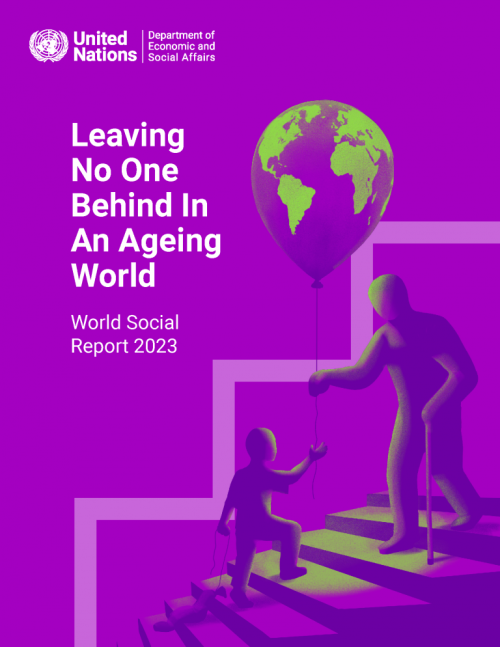
Population ageing is a defining global trend of our time. People are living longer, and more are older than ever before. Spectacular improvements in health and survival and reductions in fertility have driven this momentous shift, which has begun or is expected to begin soon in all countries and areas.
This change brings both challenges and opportunities as countries strive to achieve the Sustainable Development Goals (SDGs). In 2022, the world marked the twentieth anniversary of the adoption of the Madrid International Plan of Action on Ageing. To commemorate this landmark, the World Social Report 2023 explores the economic and social implications of the ageing of the human…
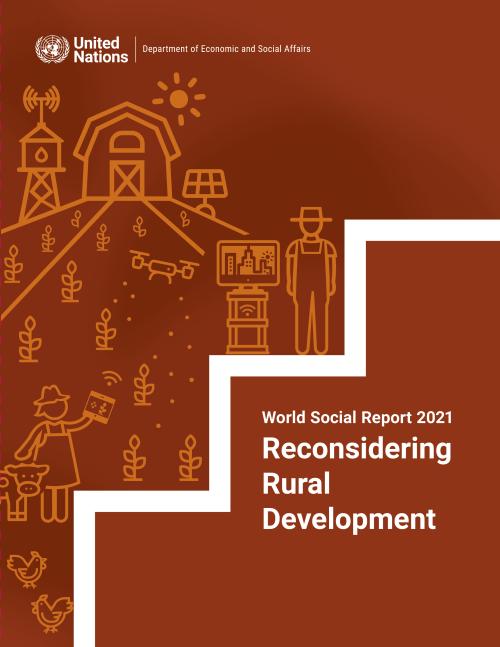
New approaches made possible through improved access and Internet connectivity can raise the standard of living for approximately 3.4 billion people living in rural areas, without them having to migrate to cities, according to the newly released 2021 World Social Report “Reconsidering Rural Development.”
The COVID-19 pandemic, together with already persistent high levels of poverty and inequalities, are threatening to stall progress for the world’s rural populations. But the pandemic has also proven that new technologies can enable rural populations to flourish, ending the rural-urban divide.
UN Secretary-General António Guterres said the new technologies opened up new…
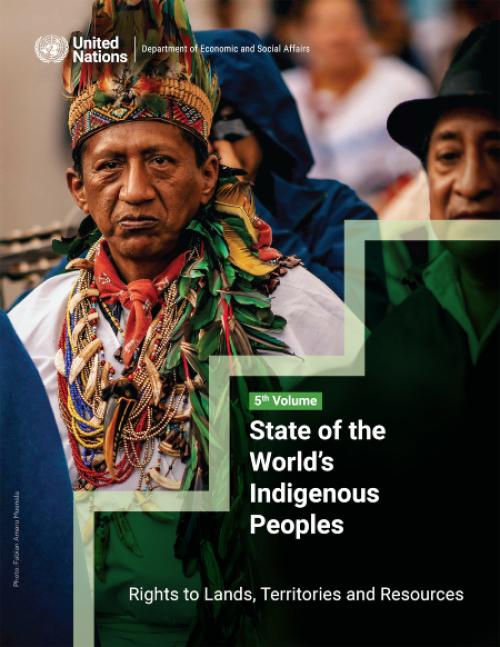
The world’s indigenous peoples call 22 per cent of the global land surface home. They live in areas where you find about 80 per cent of the planet’s biodiversity and much of the world’s non-commercially exploited land and many of its remaining mineral and forest resources, major rivers, fossil fuels and sources of renewable energy.
While often described as the custodians of our Earth’s precious resources, they are frequently denied their rights to lands, territories and resources, according to a new UN DESA publication released today.
The latest volume of the State of the World’s Indigenous Peoples entitled “Rights to Lands, Territories and Resources”,…
COVID-19 has disrupted all forms of human mobility through the closing of national borders and halting of travel worldwide. Preliminary estimates suggest that the pandemic may have slowed the growth in the stock of international migrants by around two million by mid-2020, 27 per cent less than the growth expected since mid-2019, according to a report by the United Nations released today.
Growth in the number of international migrants has been robust over the last two decades, reaching 281 million people living outside their country of origin in 2020, up from 173 million in 2000 and 221 million in 2010. Currently, international migrants represent about 3.6 per cent of…
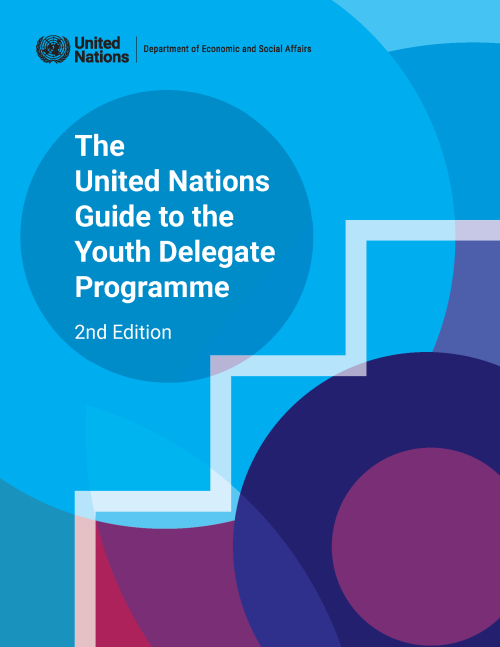
This guide has been developed as a resource for Member States to provide information about the inclusion of youth in their delegations and offers ideas for those with existing youth delegate programmes on how to potentially strengthen them. It includes sections on establishing a programme, suggestions for possible roles of youth delegates and practicalities to be considered.
 Welcome to the United Nations
Welcome to the United Nations